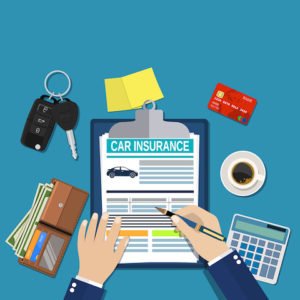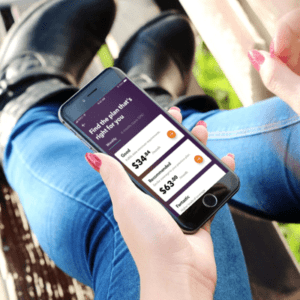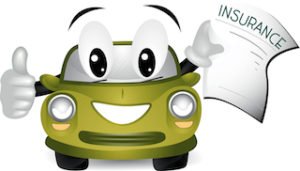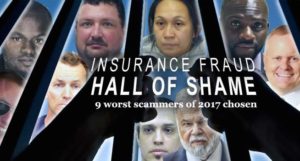America’s century-old love affair with driving may be transitioning to an amicable acquaintance.
Since 1983, the percentage of people with a driver’s license has steadily decreased among 16 to 44 year olds. At the same time, reliance on public transportation and ridesharing services are on the rise. As more Americans steer away from the driver’s seat and new products such as usage-based insurance (UBI) gain traction, the National Association of Insurance Commissioners (NAIC) thinks consumers should rethink their auto insurance options. The new DriveCheck assessment from NAIC helps consumers determine if UBI may fit their driving habits.
“Exciting transformations in mobility, including ridesharing, increased use of public transportation and self-driving vehicles mean consumer driving habits are and will continue to change,” said NAIC President and Wisconsin Insurance Commissioner Ted Nickel. “New insurance products may be an option for some drivers whose habits have shifted. That’s why the NAIC created DriveCheck. The simple online assessment helps consumers understand how UBI works and determine if it’s a good fit for their driving behaviors.”
Driving Decline
Carrying no driver’s license has been prominent among Millennials and members of Generation Z for years. Once the ultimate mark of adulthood, only 69% of 19-year-olds had a driver’s license in 2014, compared with almost 90% in 1983. This trend is gaining traction in middle-aged adults, as fewer choose to renew.
Drivers cite cost of insurance and availability of alternate options — including ridesharing services — as key factors when deciding to forgo driving. In fact, a recent survey revealed that 10% of Americans who trade in cars are not purchasing new ones and instead opt to use ridesharing services.
Ridesharing is especially common in the business community, as rides with Uber and Lyft rose to 46% of all ground transportation during business trips, overtaking both taxis and rental cars in popularity. The ridesharing industry expects 13% growth in 2017.
Insurance Impact
As mobility preferences shift, the NAIC says consumers should re-evaluate their auto insurance needs and options. One consideration is usage-based insurance. UBI examines driving habits (miles driven, speed, time of day and other factors) to determine insurance costs. Less than half of Americans are aware of UBI as an option and only about 6% are using the product. Yet, when offered UBI as an option, half of American drivers make the switch.
DriveCheck provides assessment
Insure U’s new DriveCheck tool takes consumers through a few quick questions about driving habits while providing more information about how UBI works. At the end, users receive an assessment of the likelihood they will benefit from UBI.
Consumers are then prompted to discuss usage-based insurance with their insurance agent. If a provider doesn’t offer UBI, chances are they will in the future. Consumers interested in UBI can shop around to find an insurance company who can answer questions and provide a quote.
Beyond UBI
Usage-based insurance isn’t for everyone. However, NAIC encourages all drivers to review their auto insurance policies from time to time, and offers the following tips when re-evaluating insurance needs:
• If UBI isn’t for you, talk to your insurer to determine if there are other cost-saving opportunities. Discounts may be available for multiple vehicles, driver education courses, good student, safety devices, anti-theft devices, low mileage, good driver/renewal, auto/home package and dividends.
• If a friend or roommate borrows your car from time to time, talk to your agent to see if you are covered in case the borrower gets in an accident. Likely, the best option is for your friend to have his/her own car insurance to cover any damages.
• If you’ve given up driving altogether, there are still risks to consider. Before accepting a shared ride from a company like Uber or Lyft, know the extent to which you are protected in the event of an accident.
• Most ridesharing companies have liability policies to cover any passenger injuries. If you are injured while riding, report a claim with the driver’s insurer and the ridesharing company’s insurer.
• If you’re considering contracting as an Uber or Lyft driver, make sure you understand the insurance implications. Review tips from Insure U before you get behind the wheel.
For unbiased information and resources to help consumers rethink insurance, visit www.insureuonline.org. For location-specific insurance information, contact your state insurance commissioner.
SEE ALSO: How great credit/no credit impacts auto insurance premiums
About the NAIC: The National Association of Insurance Commissioners (NAIC) is the U.S. standard-setting and regulatory support organization created and governed by the chief insurance regulators from the 50 states, the District of Columbia and five U.S. territories. Through the NAIC, state insurance regulators establish standards and best practices, conduct peer review and coordinate their regulatory oversight. NAIC staff supports these efforts and represents the collective views of state regulators domestically and internationally. NAIC members, together with the central resources of the NAIC, form the national system of state-based insurance regulation in the U.S. For more information, visit www.naic.org.













